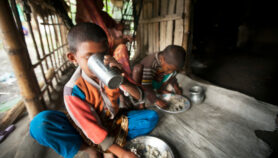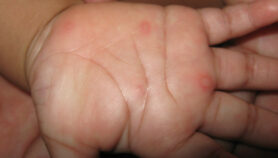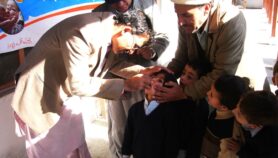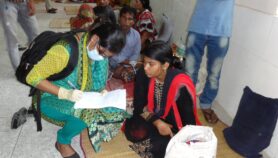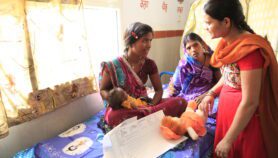08/02/22
Philippines starts COVID-19 jabs for school children
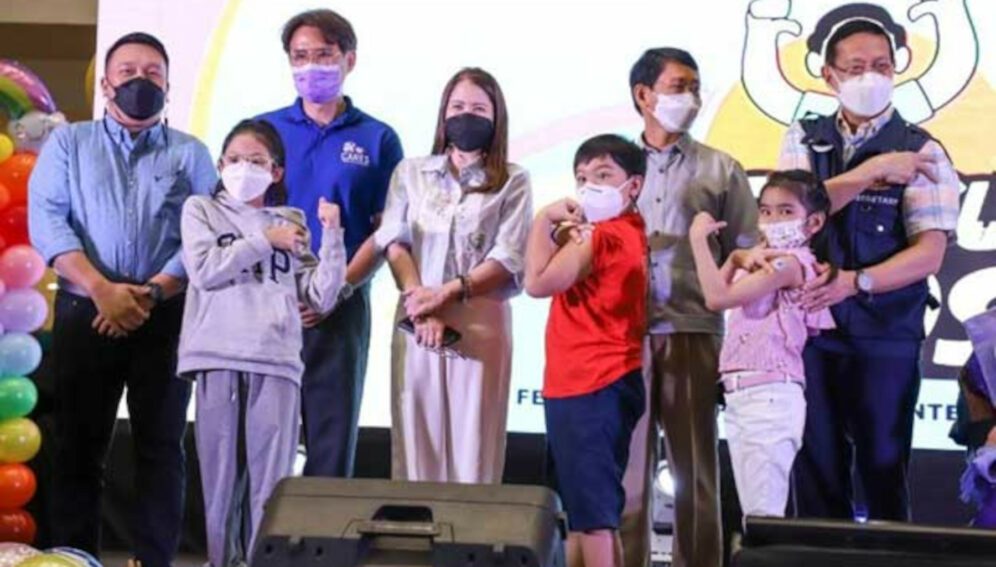
By: Melanie Sison
Send to a friend
The details you provide on this page will not be used to send unsolicited email, and will not be sold to a 3rd party. See privacy policy.
[MANILA] The Philippines began vaccinating children aged five to 11 against COVID-19 on Monday after initial hiccups over delayed deliveries of the Pfizer-BioNTech doses and opposition to the drive by some parents.
A total of 780,000 doses have been delivered, representing 2.6 per cent of the 30 million doses that the Philippine government had ordered for a rollout originally set for 4 February.
A statement by the Philippines’ Department of Health (DOH) said that the rollout followed a “stringent review” by four independent expert groups while global data showed no deaths were attributable to the jab among over 8.7 million vaccinated children in the 5 to 11 age group. For the Philippines, the health agency noted that over 99 per cent of the vaccinated individuals between 12 and 17 years did not experience post-vaccination symptoms.
— Department of Health (@DOHgovph) February 6, 2022
The department cited a joint release by the Philippine Pediatric Society and the Pediatric Infectious Disease Society of the Philippines which said that COVID-19, though less severe in children than in adults, could still result in hospitalisation. The societies reported that around three per cent of cases and 0.5 per cent of deaths from COVID-19 were of children between five and 11 years.
Emergency use authorisation for the paediatric Pfizer-BioNTech vaccine was granted by the Philippine Food and Drug Administration on 22 December, 2021. The country had already been vaccinating the 12 to 17 age group since October.
Rajendra Yadav, acting WHO representative to the Philippines, said: “Getting children vaccinated will protect them and prevent the possible spread to others, including at home and school. Other public health and social measures must continue to be applied to keep schools safe when open.
“The more people and children are vaccinated, the more protected we all are against COVID-19. Together we can help prevent new variants from emerging. We can slow down COVID-19 in its tracks. You can now protect the whole family — from age five to 95 or more — by getting vaccinated.”
“The more people and children are vaccinated, the more protected we all are against COVID-19. Together we can help prevent new variants from emerging. We can slow down COVID-19 in its tracks. You can now protect the whole family — from age five to 95 or more — by getting vaccinated.”
Rajendra Yadav, acting WHO representative to the Philippines
A petition was filed in a Metro Manila regional court by two parents, one of whom is a media practitioner, objecting to the Department of Health memorandum stipulating that the state can act on behalf of parents who refuse to have their children vaccinated. This policy follows a move by the Philippine government, now suspended, to stop those unvaccinated against COVID-19 from using public transport.
“Striking a balance between an individual’s right to refuse vaccination and the right of the State to enforce policies which are deemed necessary to prevent the spread of infection in the population is a matter of constant debate,” Manuel Dayrit, former Department of Health secretary and adjunct professor and former dean of the Ateneo School of Medicine and Public Health, Manila, told SciDev.Net.
Meanwhile, the Concerned Doctors and Citizens of the Philippines is lobbying for the suspension not just of the vaccination of children, but all vaccination efforts in the Philippines. It says exposing children to potentially negative side effects is “utterly immoral”.
A December 2021 report from the Centres for Disease Control and Prevention said that side effects experienced by children included vomiting, fever, headache, syncope and chest pain. There were 12 reports of myocarditis (heart inflammation) after receiving the shot, mostly among boys — an issue that the report noted was consistent in the 12 to 15 and 16 to 17 age groups.
Albert Domingo, health systems specialist at the Makati Medical Center Foundation, Manila, said: “Around 8 or 9 million are already vaccinated worldwide within the range of five to 11. Yes, there were recorded incidents of myocarditis… but the myocarditis in children who were not vaccinated and who had COVID-19 turned out to be higher than myocarditis recorded in those who were vaccinated against COVID-19.”
Dayrit added: “It cannot be denied that there are risks of adverse events with vaccines. However, these risks have been identified and have been shown to be much lower than the risks of severe illness and death due to COVID-19.”
WHO’s interim guidelines on the use of the Pfizer-BioNTech vaccine, updated on 21 January, reported that Phase 3 trials of the vaccine among children in the five to 11 age group showed 90.7 per cent efficacy against symptomatic disease, with no incidence of myocarditis reported among the 3,082 participants within seven days of receiving the second dose.
The Philippines continues to grapple with vaccine hesitancy, which Domingo says stems from confidence, convenience and complacency. He recommends changing the strategy for vaccinating children, including tying up with child-friendly spaces such as toy stores and theme parks.
“Make the vaccination experience a happy experience for the kids,” he suggests. “Otherwise, it’s going to be inconvenient for them, and it will go to hesitancy.”
This piece was produced by SciDev.Net’s Asia & Pacific desk.







